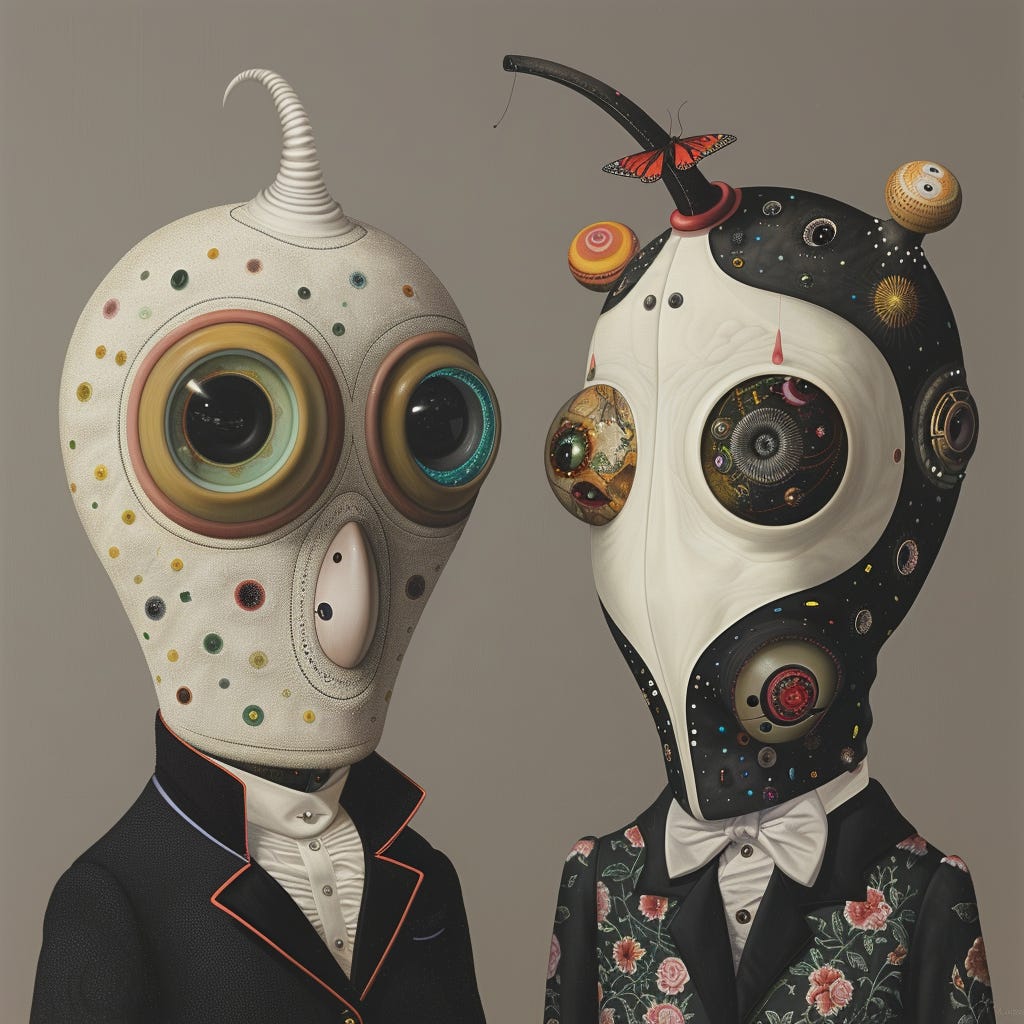Shifting perceptions of smartness
Weekly Triggered Thought
Last Tuesday I did participate in a session with students from the "Minor Interacting Environments" program at TU Delft. This experience provided some thoughts to share.
Triggered Thought
Now, let's delve into some thoughts sparked by the student session. The topic revolves around our relationship with new, intelligent, autonomous, and generative objects or entities. The minor program focuses on designing and conceptualizing interactive environments, exploring their impact on people's lives.
One of the commissioners for student assignments is Schiphol Airport in Amsterdam. They're interested in exploring new functions for the airport during periods of reduced flight activity, envisioning it as a space that combines work and shopping in innovative ways. During the session I attended on Tuesday, we discussed smart objects. Students had prepared an exercise inviting participants to take positions on various aspects of smart objects, such as whether they make us smarter or dumber, and what defines a smart object.
This exercise prompted me to revisit my own definitions and research on predictive relations from 2018-2019. At that time, I made a clear distinction between smart objects and intelligent agents:
Smart Objects: These are adaptive and responsive to their environment but follow pre-programmed rules. Examples include vacuum robots and programmable thermostats.
Intelligent Objects: These are capable of creating their own strategies by combining different types of information and insights. They don't have agency or consciousness but can adapt more flexibly than smart objects.
Things with Agency: These not only have intelligence but also make their own decisions and valuations. They learn from their actions and can even initiate interactions with humans.
What struck me during the student session was how their definition of smart objects aligned more closely with what I previously categorized as "things with agency." This shift in perception suggests an evolution in how we conceptualize smart technology.
The students' view of smart objects as having agency and intelligence reflects a changing understanding of what "smart" means in our society. It raises questions about the future roles of these objects in our lives and how we'll interact with them. This evolution in perception also prompts us to consider what the next level of intelligence or agency might look like beyond what we now consider "smart." Will it be something even more human-like, or will it develop in entirely new directions? These are fascinating questions to ponder as we continue to explore the rapidly evolving landscape of smart and intelligent technologies.
This weekly “Triggered Thought” is written as part of the Target is New newsletter, which offers an overview of captured news from the week, paper for the week, and interesting events. Find the full newsletter here.
About the author; Iskander is particularly interested in digital-physical interactions and a focus on human-tech intelligence co-performance. He chairs the Cities of Things foundation and is one of the organizers of ThingsCon. Target is New is his “practice for making sense of unpredictable futures in human-AI partnerships”.


